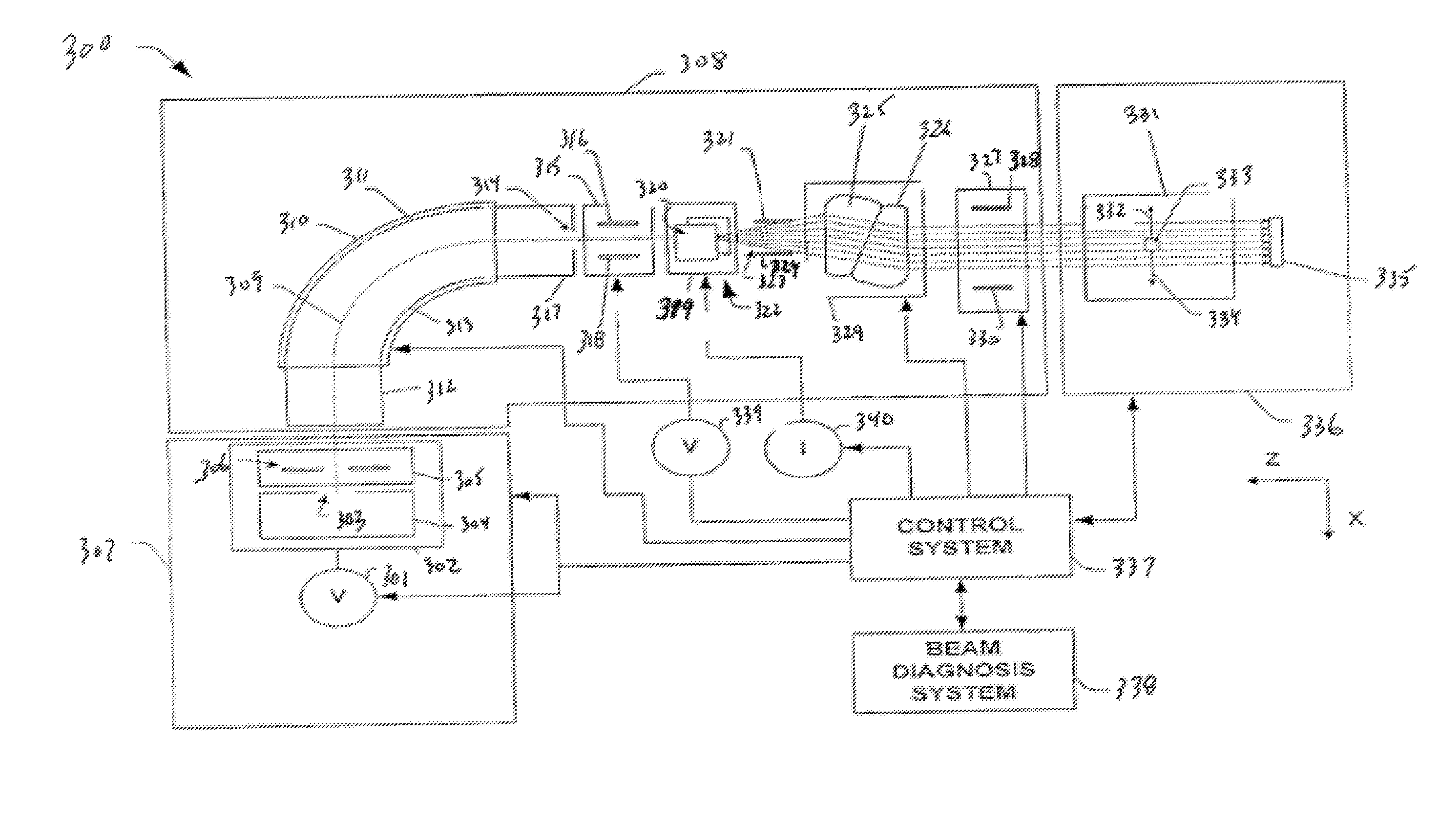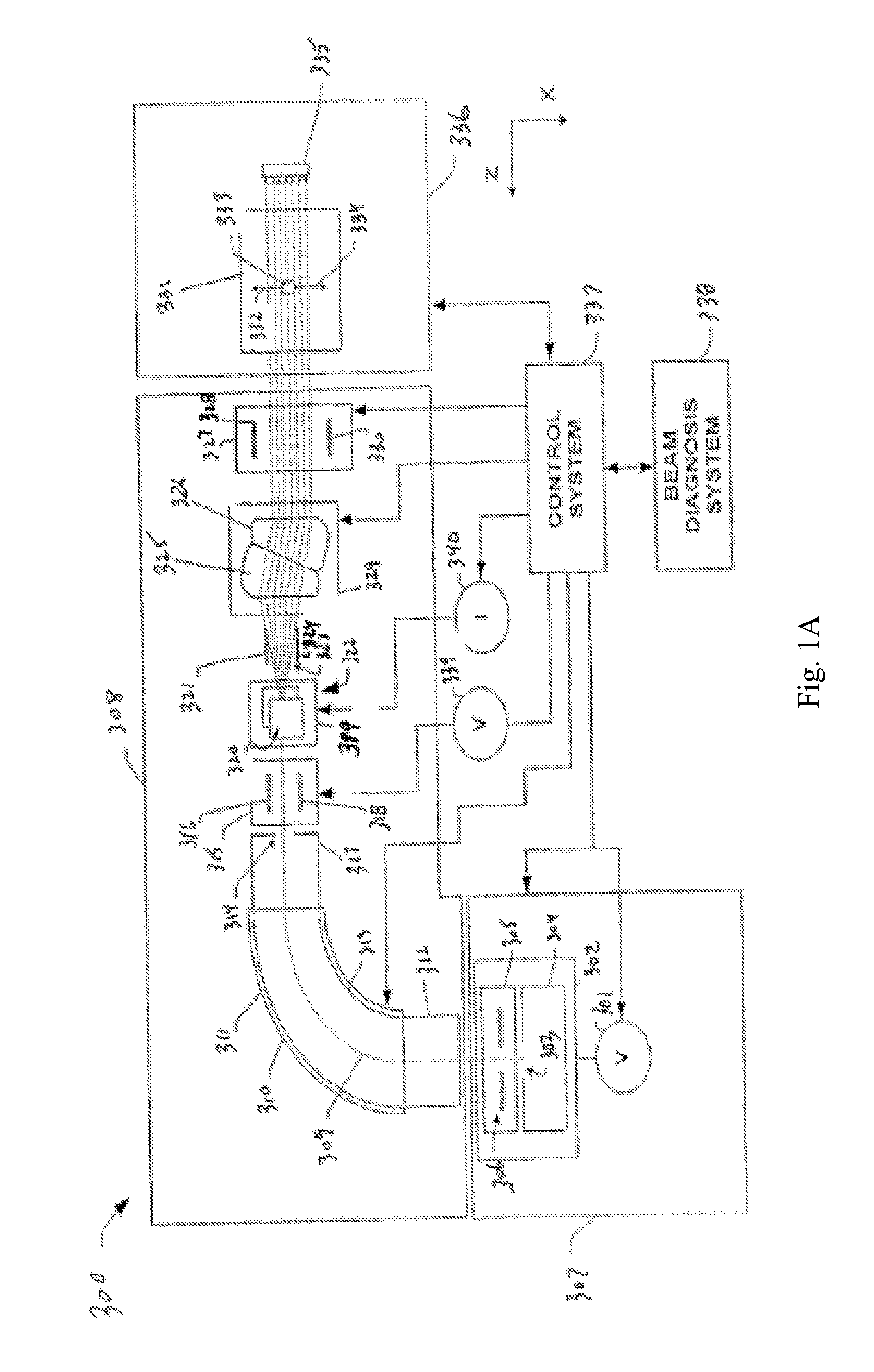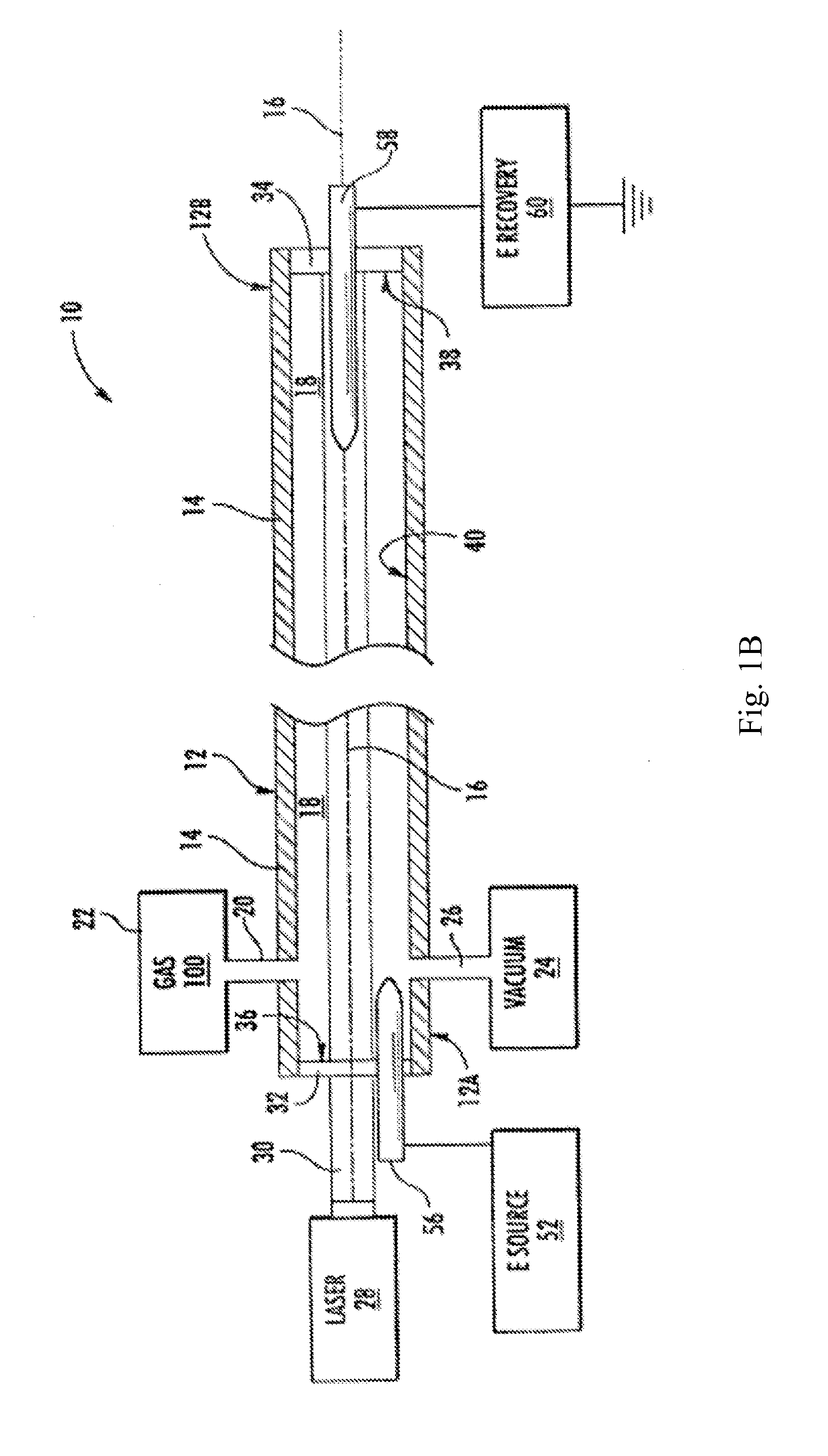Adjustable mass resolving aperture
a mass resolving aperture and adjustable technology, applied in the field of mass resolving aperture, can solve the problems of contaminants entering the ion beam, residue build-up, etc., and achieve the effects of preventing recombination of its components, reducing the number of ion beams, and improving the uniformity and productivity of the ion implantation process
- Summary
- Abstract
- Description
- Claims
- Application Information
AI Technical Summary
Benefits of technology
Problems solved by technology
Method used
Image
Examples
Embodiment Construction
[0044]At the outset, it should be clearly understood that like reference numerals are intended to identify the same structural elements, portions or surfaced consistently throughout the several drawings figures, as such elements, portions or surfaces may be further described or explained by the entire written specification, of which this detailed description is an integral part. Unless otherwise indicated, the drawings are intended to be read (e.g., cross-hatching, arrangement of parts, proportion, degree, etc.) together with the specification, and are to be considered a portion of the entire written description of this invention. Components are not drawn to scale or proportion. As used in the following description, the terms “horizontal” and “vertical” simply refer to the orientation of an object relative to level ground, and the terms “left”, “right”, “top” and “bottom”, “up” and “down”, as well as adjectival and adverbial derivatives thereof (e.g., “rightwardly”, “upwardly”, etc....
PUM
| Property | Measurement | Unit |
|---|---|---|
| angle | aaaaa | aaaaa |
| electrical resistivity | aaaaa | aaaaa |
| temperature | aaaaa | aaaaa |
Abstract
Description
Claims
Application Information
 Login to View More
Login to View More - R&D
- Intellectual Property
- Life Sciences
- Materials
- Tech Scout
- Unparalleled Data Quality
- Higher Quality Content
- 60% Fewer Hallucinations
Browse by: Latest US Patents, China's latest patents, Technical Efficacy Thesaurus, Application Domain, Technology Topic, Popular Technical Reports.
© 2025 PatSnap. All rights reserved.Legal|Privacy policy|Modern Slavery Act Transparency Statement|Sitemap|About US| Contact US: help@patsnap.com



